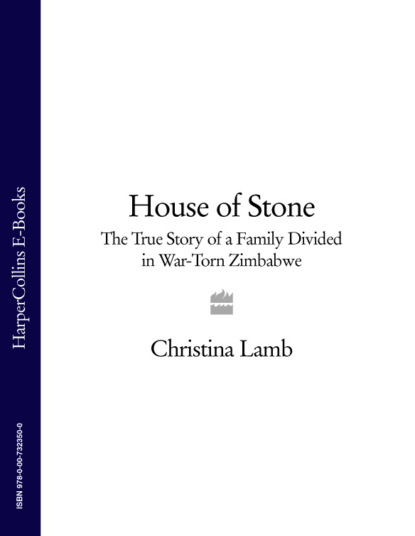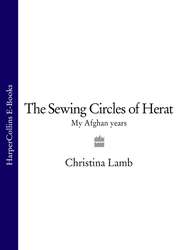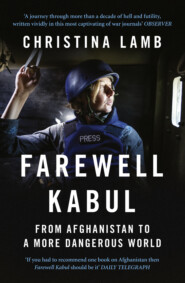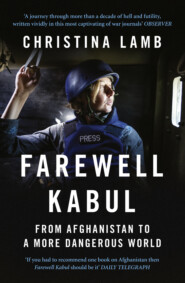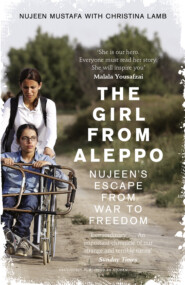По всем вопросам обращайтесь на: info@litportal.ru
(©) 2003-2024.
✖
House of Stone: The True Story of a Family Divided in War-Torn Zimbabwe
Настройки чтения
Размер шрифта
Высота строк
Поля
House of Stone: The True Story of a Family Divided in War-Torn Zimbabwe
Christina Lamb
A powerful and intensely human insight into the civil war in Zimbabwe, focusing on a white farmer and his maid who find themselves on opposing sides.One bright morning Nigel Hough, one of the few remaining white farmers in Mugabe’s Zimbabwe, received the news he was dreading – a crowd were at the gate demanding he surrender his home and land. To his horror, his family's much-loved nanny Aqui was at the head of the violent mob that then stole his homestead and imprisoned him in an outhouseBy tracing the intertwined lives of Nigel and Aqui – rich and poor, white and black, master and maid – through intimate and moving interviews, Christina Lamb captures not just the source of a terrible conflict, but also her own conviction that there is still hope for one of Africa’s most beautiful countries.
House of Stone
THE TRUE STORY OF A FAMILY DIVIDED IN WAR-TORN ZIMBABWE
CHRISTINA LAMB
To my parentswho taught me there are alwaysat least two sides to a story
Among the gold mines of the inland plains between the Limpopo and Zambezi rivers [there is a] … fortress built of stones of marvellous size, and there appears to be no mortar joining them … This edifice is almost surrounded by hills, upon which are others resembling it in the fashioning of stone and the absence of mortar and one of them is a tower more than 12 fathoms high.
VICENTE PEGADO, captain at the Portuguese garrison of Sofala,
on seeing the ruins of Great Zimbabwe,
dzimba dza mabwe, House of Stone, 1531
I have one great fear in my heart-that one day when they are turned to loving they will find we are turned to hating.
ALAN PATON, Cry, the Beloved Country (1948)
CONTENTS
Title Page (#u48b0add3-9739-586e-990c-6431da9b3688)
Dedication (#uab293237-b521-58c0-a834-0d74943a9bd0)
Epigraph (#ufa538257-26a2-5f45-8ef2-2c4dfed15118)
Prologue (#u88cb8415-efba-5906-8cb3-4077e811ec7c)
1 Zhakata's Kraal, 1970 (#u0844bfc0-8817-5c2b-abe8-888f83e7e058)
2 Riversdale Farm, Headlands, 1971 (#u73090140-508b-5404-8c46-b51e512a5bd9)
3 Zhakata's Kraal, 1973 (#u703dda73-38b4-5c11-b862-6f0916986369)
4 Train to Salisbury, 1974 49 (#uf14989e4-0504-5369-a009-82d371870299)
5 Zhakata's Kraal, 1974 (#litres_trial_promo)
6 Salisbury, 1976 (#litres_trial_promo)
7 Marondera, 1980 (#litres_trial_promo)
8 Salisbury, 1980 (#litres_trial_promo)
9 Dombotombo township, Marondera, 1986 (#litres_trial_promo)
10 Victoria Falls, 1990 (#litres_trial_promo)
11 Marondera, 1993 (#litres_trial_promo)
12 Guanghzou, China, 1991 (#litres_trial_promo)
13 Marondera, 1999 (#litres_trial_promo)
14 New Life Centre Church, Marondera, 16 April 2000 (#litres_trial_promo)
15 Zhakata's Kraal, 2001 (#litres_trial_promo)
16 Kendor Farm, May 2002 (#litres_trial_promo)
17 Kendor Farm, 5 August 2002 (#litres_trial_promo)
Postscript (#litres_trial_promo)
Epilogue - Great Zimbabwe, November 2005 (#litres_trial_promo)
Chronology (#litres_trial_promo)
Glossary (#litres_trial_promo)
Acknowledgements (#litres_trial_promo)
About the Author (#litres_trial_promo)
Praise (#litres_trial_promo)
Also by Christina Lamb (#litres_trial_promo)
Copyright (#litres_trial_promo)
About the Publisher (#litres_trial_promo)
Prologue (#u8981bcc6-a041-522c-bdef-8a852d4e573a)
THE WAR VETERANS had been living at the bottom of the garden (#litres_trial_promo) for months. Every afternoon the family would take tea on the terrace and stare beyond the swimming pool and children's tree house to the plumes of smoke rising from the round thatched huts that the squatters had built. Every night the family tossed and turned to their drumming and chanting. The next morning the farmer would find the carcasses of the cattle that the intruders had slaughtered.
Kendor Farm was in Wenimbi Valley in the rich tobacco-growing district of Marondera. Tobacco was Zimbabwe's main export, and for the previous two and a half years neighbouring farms all around them had endured similar invasions. The first murder of a white farmer had happened only a few miles away on 15 April 2000. Since then many farmers had been badly beaten; some had been hacked to death. Most had been either kicked off or fled. By August 2002 the morning roll call over the radio, started to check on the safety of local farmers, had stopped because Kendor was the only white farm left in the valley.
The Hough family had thought about leaving. But the 1,400-acre ostrich and tobacco farm and eight-bedroom house with its sweeping view over the balancing rocks and floaty canopy of msasa trees was their dream. They had worked hard for the farm and sunk all their money into it. They wanted their children to grow up as they had and could not imagine starting all over again. Other white farmers who had moved abroad to England or Australia had ended up driving minicabs and living in poky council flats. Besides, it was not only them. On the land they had a factory producing bags and shoes from ostrich leather and they employed 300 people as well as running an orphanage for children whose parents had died in the AIDS pandemic.
One morning, Claire Hough had gone to take the children to school and her husband Nigel had left for a meeting in town when their manager called in a panic. A crowd of people had arrived at the gate waving a letter demanding the farm. Nigel grabbed a friend and rushed back in his pick-up. By the time they got there, the mob had started a fire in his driveway, taunting him and barring their way with sticks and shamboks (#litres_trial_promo). ‘Hondo, hondo’ they chanted, Shona for ‘war’. He could see that some of his furniture had been taken out of the house and piled up in front of the terrace.
Nigel telephoned the police but they refused to come, saying they did not involve themselves in ‘domestic matters’. By now the crowd had surrounded him, dragging him off, nostrils flaring as they scented blood. ‘This is not Rhodesia any more!’ shouted one man. ‘Go back to your own people.’ As they pulled him towards an outhouse, Nigel noticed that some of the women had draped themselves in his wife's scarves and dresses and were tossing around his children's stuffed animals. Then he noticed something else.
Christina Lamb
A powerful and intensely human insight into the civil war in Zimbabwe, focusing on a white farmer and his maid who find themselves on opposing sides.One bright morning Nigel Hough, one of the few remaining white farmers in Mugabe’s Zimbabwe, received the news he was dreading – a crowd were at the gate demanding he surrender his home and land. To his horror, his family's much-loved nanny Aqui was at the head of the violent mob that then stole his homestead and imprisoned him in an outhouseBy tracing the intertwined lives of Nigel and Aqui – rich and poor, white and black, master and maid – through intimate and moving interviews, Christina Lamb captures not just the source of a terrible conflict, but also her own conviction that there is still hope for one of Africa’s most beautiful countries.
House of Stone
THE TRUE STORY OF A FAMILY DIVIDED IN WAR-TORN ZIMBABWE
CHRISTINA LAMB
To my parentswho taught me there are alwaysat least two sides to a story
Among the gold mines of the inland plains between the Limpopo and Zambezi rivers [there is a] … fortress built of stones of marvellous size, and there appears to be no mortar joining them … This edifice is almost surrounded by hills, upon which are others resembling it in the fashioning of stone and the absence of mortar and one of them is a tower more than 12 fathoms high.
VICENTE PEGADO, captain at the Portuguese garrison of Sofala,
on seeing the ruins of Great Zimbabwe,
dzimba dza mabwe, House of Stone, 1531
I have one great fear in my heart-that one day when they are turned to loving they will find we are turned to hating.
ALAN PATON, Cry, the Beloved Country (1948)
CONTENTS
Title Page (#u48b0add3-9739-586e-990c-6431da9b3688)
Dedication (#uab293237-b521-58c0-a834-0d74943a9bd0)
Epigraph (#ufa538257-26a2-5f45-8ef2-2c4dfed15118)
Prologue (#u88cb8415-efba-5906-8cb3-4077e811ec7c)
1 Zhakata's Kraal, 1970 (#u0844bfc0-8817-5c2b-abe8-888f83e7e058)
2 Riversdale Farm, Headlands, 1971 (#u73090140-508b-5404-8c46-b51e512a5bd9)
3 Zhakata's Kraal, 1973 (#u703dda73-38b4-5c11-b862-6f0916986369)
4 Train to Salisbury, 1974 49 (#uf14989e4-0504-5369-a009-82d371870299)
5 Zhakata's Kraal, 1974 (#litres_trial_promo)
6 Salisbury, 1976 (#litres_trial_promo)
7 Marondera, 1980 (#litres_trial_promo)
8 Salisbury, 1980 (#litres_trial_promo)
9 Dombotombo township, Marondera, 1986 (#litres_trial_promo)
10 Victoria Falls, 1990 (#litres_trial_promo)
11 Marondera, 1993 (#litres_trial_promo)
12 Guanghzou, China, 1991 (#litres_trial_promo)
13 Marondera, 1999 (#litres_trial_promo)
14 New Life Centre Church, Marondera, 16 April 2000 (#litres_trial_promo)
15 Zhakata's Kraal, 2001 (#litres_trial_promo)
16 Kendor Farm, May 2002 (#litres_trial_promo)
17 Kendor Farm, 5 August 2002 (#litres_trial_promo)
Postscript (#litres_trial_promo)
Epilogue - Great Zimbabwe, November 2005 (#litres_trial_promo)
Chronology (#litres_trial_promo)
Glossary (#litres_trial_promo)
Acknowledgements (#litres_trial_promo)
About the Author (#litres_trial_promo)
Praise (#litres_trial_promo)
Also by Christina Lamb (#litres_trial_promo)
Copyright (#litres_trial_promo)
About the Publisher (#litres_trial_promo)
Prologue (#u8981bcc6-a041-522c-bdef-8a852d4e573a)
THE WAR VETERANS had been living at the bottom of the garden (#litres_trial_promo) for months. Every afternoon the family would take tea on the terrace and stare beyond the swimming pool and children's tree house to the plumes of smoke rising from the round thatched huts that the squatters had built. Every night the family tossed and turned to their drumming and chanting. The next morning the farmer would find the carcasses of the cattle that the intruders had slaughtered.
Kendor Farm was in Wenimbi Valley in the rich tobacco-growing district of Marondera. Tobacco was Zimbabwe's main export, and for the previous two and a half years neighbouring farms all around them had endured similar invasions. The first murder of a white farmer had happened only a few miles away on 15 April 2000. Since then many farmers had been badly beaten; some had been hacked to death. Most had been either kicked off or fled. By August 2002 the morning roll call over the radio, started to check on the safety of local farmers, had stopped because Kendor was the only white farm left in the valley.
The Hough family had thought about leaving. But the 1,400-acre ostrich and tobacco farm and eight-bedroom house with its sweeping view over the balancing rocks and floaty canopy of msasa trees was their dream. They had worked hard for the farm and sunk all their money into it. They wanted their children to grow up as they had and could not imagine starting all over again. Other white farmers who had moved abroad to England or Australia had ended up driving minicabs and living in poky council flats. Besides, it was not only them. On the land they had a factory producing bags and shoes from ostrich leather and they employed 300 people as well as running an orphanage for children whose parents had died in the AIDS pandemic.
One morning, Claire Hough had gone to take the children to school and her husband Nigel had left for a meeting in town when their manager called in a panic. A crowd of people had arrived at the gate waving a letter demanding the farm. Nigel grabbed a friend and rushed back in his pick-up. By the time they got there, the mob had started a fire in his driveway, taunting him and barring their way with sticks and shamboks (#litres_trial_promo). ‘Hondo, hondo’ they chanted, Shona for ‘war’. He could see that some of his furniture had been taken out of the house and piled up in front of the terrace.
Nigel telephoned the police but they refused to come, saying they did not involve themselves in ‘domestic matters’. By now the crowd had surrounded him, dragging him off, nostrils flaring as they scented blood. ‘This is not Rhodesia any more!’ shouted one man. ‘Go back to your own people.’ As they pulled him towards an outhouse, Nigel noticed that some of the women had draped themselves in his wife's scarves and dresses and were tossing around his children's stuffed animals. Then he noticed something else.





